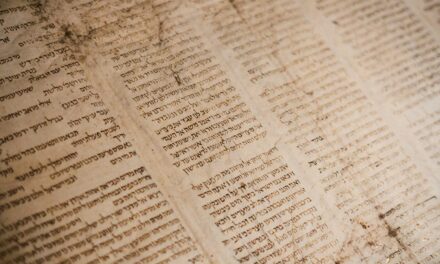John 17:1–5: The Prayer of Jesus
Introduction
The hour has come. After raising Lazarus from the dead, Jesus completed the full number of his miraculous signs. Now, he has also completed the full course of his teaching ministry. Everything that the Father has spoken, Jesus has accomplished, with only one major test ahead of him. To complete his work, Jesus must go to the cross, an act that will have astonishingly broad significance. When Jesus goes to the cross, he will silently endure the injustices committed against him (Isa. 53:7), led to the slaughter as the Lamb of God who has come to take away the sins of the world (John 1:29). He will die as the sacrifice whom God has provided as a substitute for all the true sons of Abraham (Gen. 22:14; Gal. 3:7–9; Heb. 11:17–19). He will be slain so that God will cause his judgment to pass over his people on account of his blood (Ex. 12:12–13; 1 Cor. 5:7). He will bear away the curse of the world as the scapegoat led out of the camp on the ultimate Day of Atonement (Lev. 16:20–22; Heb. 13:13).
But Jesus teaches nothing here about all that he will accomplish through his death. Instead, Jesus stops to pray. Notably, he does not pray here for a way out of the cross, and he does not even pray that he be sustained for the journey ahead. Instead, in this High Priestly Prayer of John 17, Jesus prays that his work will come to fruition. That is, he prays that his death will not be in vain, but that his Father will accomplish through his death everything that has been set out since the foundations of the earth were laid (Rev. 13:8). Jesus prays that nothing will be lost along the way, but that all will be accomplished for his glory, the glory of the Father, and the good of the people whom Jesus is dying to save. Here, Jesus intercedes for the full acceptance of his sacrifice.
Discussion Questions
1. Why does Jesus pray in John 17? What does Jesus’ prayer teach us about prayer? In particular, what does Jesus’ prayer teach us about intercessory prayer?
2. What is the connection between Jesus’ sacrifice and his prayer? What is the connection between Jesus’ work as priest and his prayer? What would be lost if Jesus had not prayed this prayer? What would be lost if Jesus did not continue to intercede for us at the right hand of his Father?
3. How does Jesus define eternal life? How do we usually think about eternal life? If knowing God through Jesus Christ is the nature of eternal life, then how should that effect the way we live our lives today in the light of eternity?
4. Why does Jesus pray to regain his former glory? Did he lose his glory for a time? What was to be gained by veiling his glory? What changes when Jesus is glorified? Practically speaking, how does Jesus’ glorification affect us?




